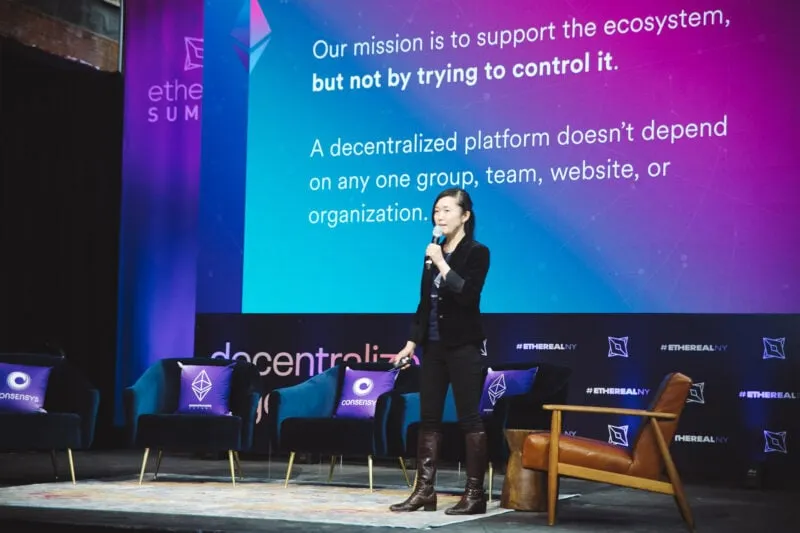The Ethereum Foundation says it’s readying an update on how it plans to address questions of ethics after two members of its core developer team took roles at a staking protocol—and were rewarded with valuable tokens.
“We are aware of the current conversation about potential conflicts of interest, and share the community’s concerns,” tweeted Aya Miyaguchi, Executive Director of the Ethereum Foundation, on Friday.
“It is clear that relying on culture and individual judgment has not been sufficient, and we have been working on a formal policy to address this problem for a while now,” she added.
The Ethereum Foundation is the non-profit responsible for funding and steering Ethereum’s early development and still bears major influence over the direction of the protocol today. In addition to Miyaguchi, the Foundation’s board of directors includes Ethereum co-founder Vitalik Buterin.
Buterin was questioned by popular crypto trader Jordan Fish last week over the financial relationship between the Foundation’s core developers with other projects building within the Ethereum ecosystem. Fish specifically called out connections to EigenLayer, a protocol for re-staking Ether to secure Ethereum layer 2 blockchains, which now holds $18.1 billion in TVL, according to DeFiLlama.
Days later, Ethereum Foundation researcher Justin Drake confirmed that he’d established a multimillion-dollar advisory relationship with EigenLayer, for which he’s received “a significant EIGEN token incentive” worth millions of dollars, comprising close to half of his net worth.
Fellow researcher Dankrad Feist also confirmed a similar relationship.
Online critics have worried that accepting money from EigenLayer could influence the experts’ analyses of re-staking risks (which trended cautious) or possibly influence his work on the core Ethereum protocol.
“[The Ethereum Foundation] are some of the highest integrity people I know and I don't see the 1% of [members] formally involved with EigenLayer compromising their morals,” Drake argued last week. To his knowledge, he said that three of 300 people at the Ethereum Foundation are formally involved with EigenLayer.
Feist also said his token allocation won’t “change or influence my positions on how the core protocol should be developed.”
In an interview with Decrypt, Ethereum co-founder and Consensys CEO Joseph Lubin said he wouldn’t “restrict anybody in the Ethereum Foundation or in the ecosystem from supporting more projects.”
Lubin noted that his own company, a leading Ethereum wallet infrastructure provider, has had many of its members move on to other ecosystem projects for financial compensation. Consensys is fine with such relationships, he said, so long as they are disclosed and there is no conflict of interest regarding Consensys-related decisions. (Consensys is one of 22 investors in Decrypt.)
“There will be so many opportunities for building good or great things or for corrupting things,” he noted. “We need to be vigilant.”
Edited by Ryan Ozawa.
Daily Debrief Newsletter
Start every day with the top news stories right now, plus original features, a podcast, videos and more.

